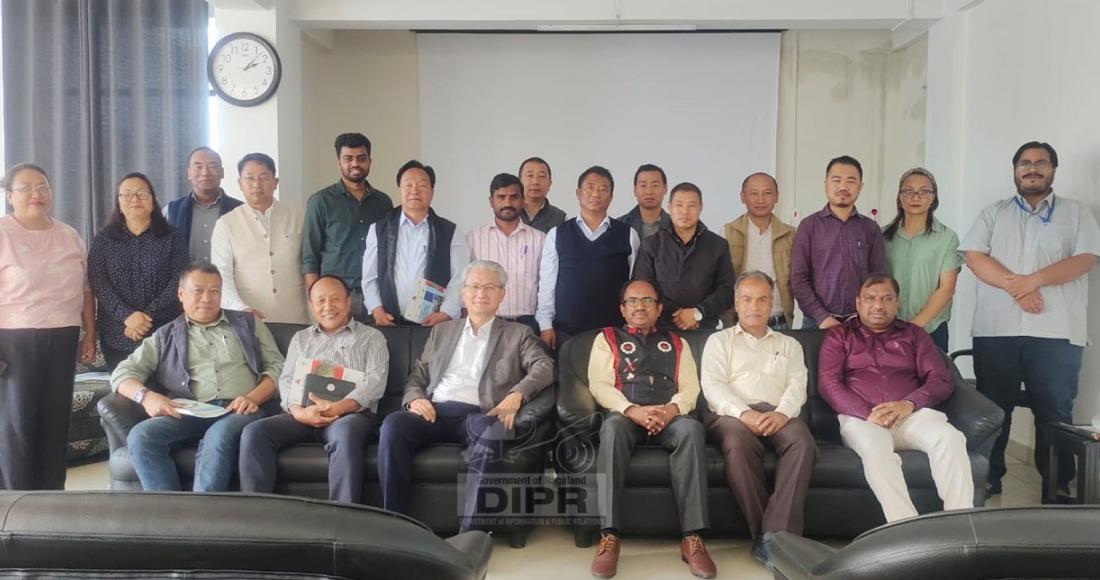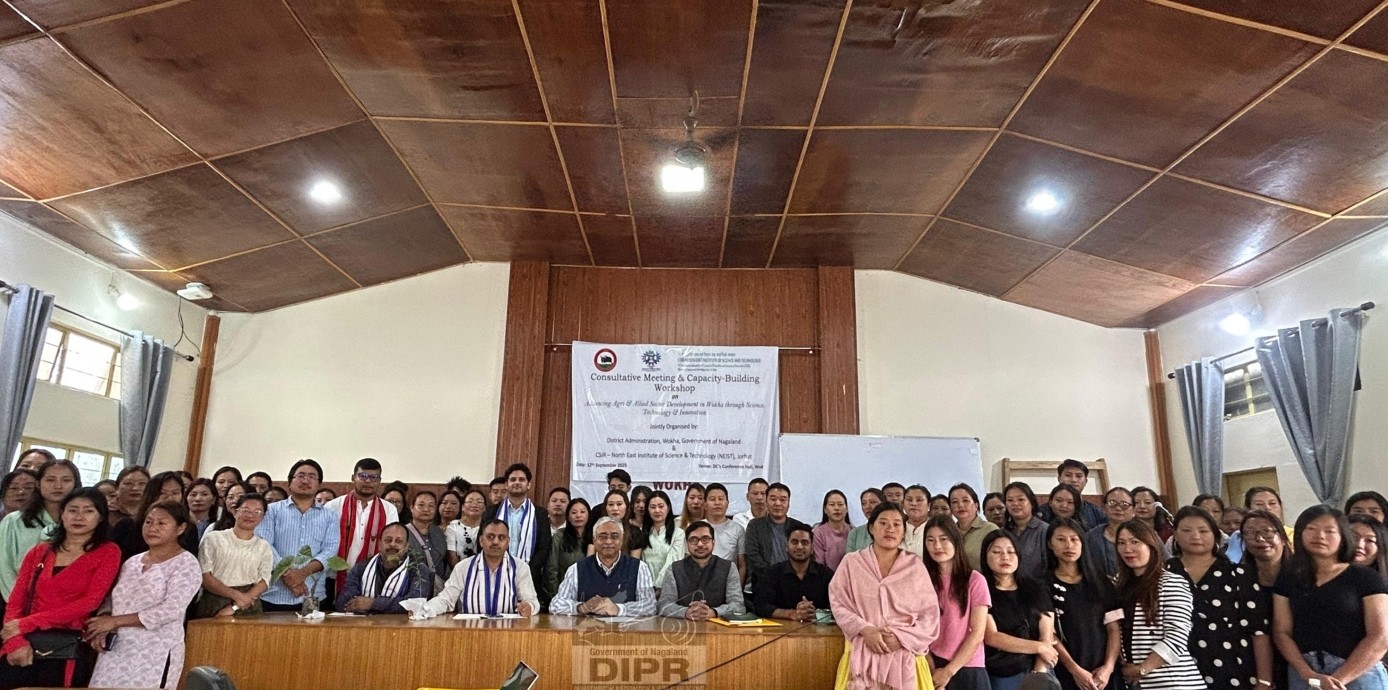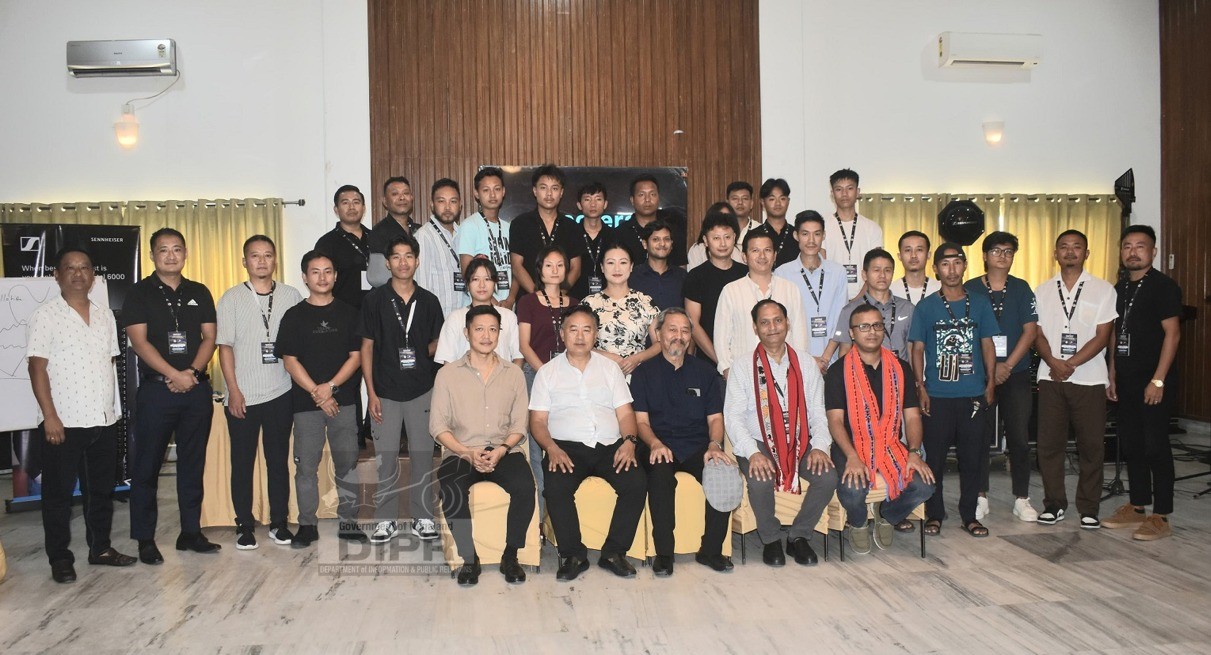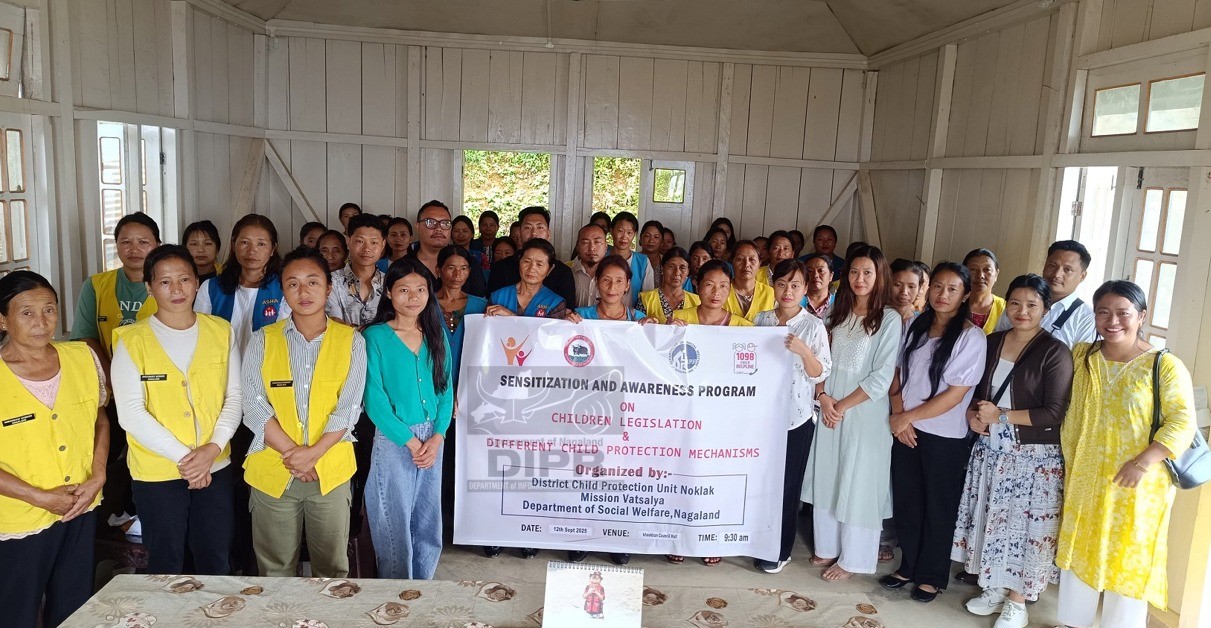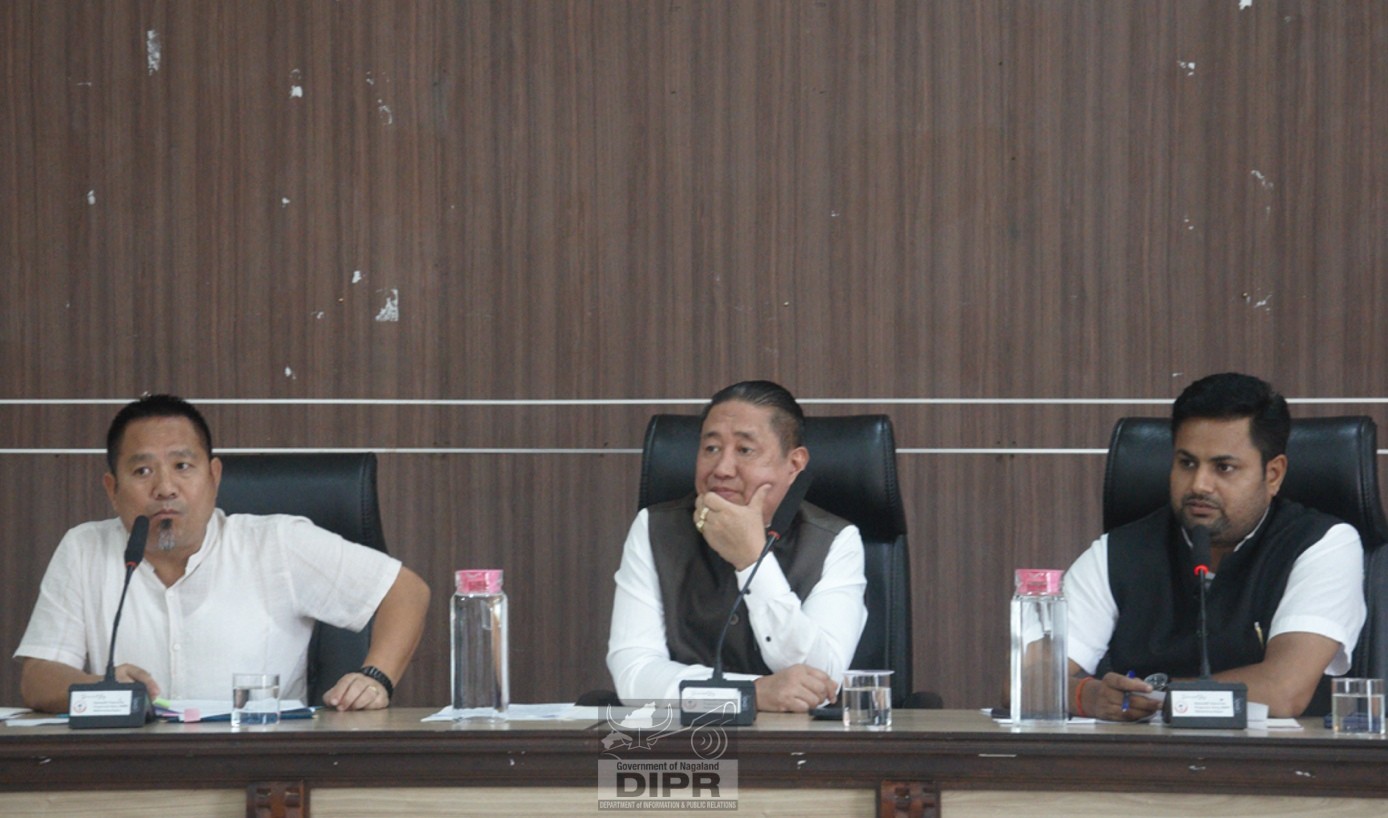A coordination meeting between the Indian Council of Agricultural Research – National Research Centre on Mithun (ICAR-NRCM) and the Department of Animal Husbandry & Veterinary Services (AH&VS), Government of Nagaland, was successfully convened on April 30, 2025. The meeting took place at the Conference Hall of the Directorate of AH & Veterinary Services in Kohima.
The event was attended by senior officials from the Directorate and a team of nine scientists from ICAR-NRC Mithun, Jharnapani, led by its Director, Dr. Girish Patel.
The meeting was chaired by Dr. B.M. Sunep, Additional Director and Head of Department (HoD), who in his opening remarks emphasized the ecological and agricultural importance of promoting the indigenous Thotho cattle breed of Nagaland. He highlighted the role of local grazing practices in maintaining soil fertility and sustaining the local soil microflora. Dr. Sunep also called for a paradigm shift in farmers’ attitudes towards cattle rearing—urging greater focus not just on milk production but also on meat, to maximize the economic potential of livestock farming in the state.
During the meeting, Dr. Girish Patel delivered a comprehensive PowerPoint presentation on the current status of Mithun rearing across the North Eastern Region (NER), with a special focus on Nagaland. He underlined the critical role Mithun plays in the tribal livelihoods, culture, and agro-ecology of the region. He also emphasized the importance of preservation and propagation of Thotho cattle and the initiation of research on semen collection and artificial insemination of the animals.
Both ICAR-NRCM and the Department of AH & Veterinary Services expressed a shared commitment to strengthen collaboration. They agreed to explore joint initiatives and programs, including resource-sharing, capacity building, and research-driven development of Mithun and indigenous cattle and other livestock farming practices in the state.
This meeting marks a significant step toward integrated livestock development in Nagaland, with the potential to enhance rural incomes, preserve indigenous breeds, and contribute to sustainable agricultural practices.
(DIPR)


